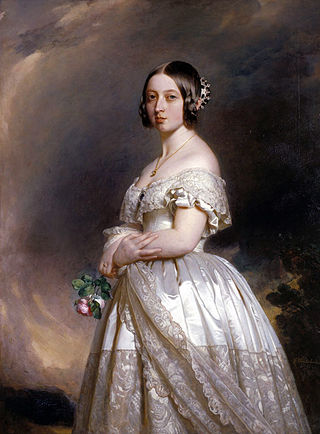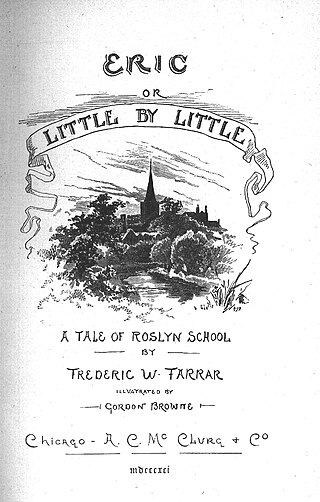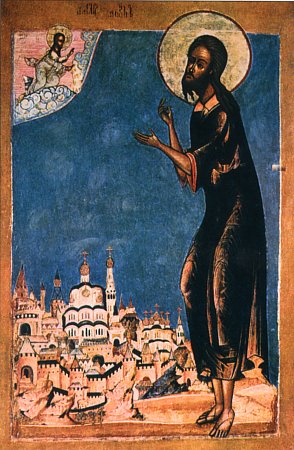| Pronunciation | hahr-lee |
|---|---|
| Gender | Unisex |
| Language(s) | English |
| Name day | June 26, November 26 (disputed) |
| Origin | |
| Word/name | Old English |
| Meaning | hær (rock) |
Harley is a unisex given name. The name is derived from the Old English words hara meaning hare, and leah, meaning wood or clearing and meadow in later development of the language. The name Harley means "hare's meadow".
Harley first became popular in the year 1880, where it was the 180th most popular masculine given name in the United States, the name first became popular as a feminine given name in 1991, and became the 667th most popular feminine given name during that year. [1]
Blair is a Scots-English-language name of Scottish Gaelic origin.

Victoria is a feminine first name. It is also used as a family name.

Brian is a male given name of Irish and Breton origin, as well as a surname of Occitan origin. It is common in the English-speaking world.
Chris is a short form of various names including Christopher, Christian, Christina, Christine, and Christos. Chris is also used as a name in its own right, however it is not as common.
Jamie is a unisex name. Traditionally a masculine name, it can be diminutive form of James or, more rarely, other names and is of Scottish Gaelic origin. It is also given as a name in its own right. Since the late 20th century it has been used as an occasional feminine name particularly in the United States.

The given name Eric, Erich, Erikk, Erik, Erick, or Eirik is derived from the Old Norse name Eiríkr.

Robin is a unisex given name and a surname. It was originally a diminutive masculine given name or nickname of Robert, derived from the prefix Ro-, and the suffix -in. In Europe, although it is sometimes regarded as a feminine name, it is generally given to boys. In 2014, 88% of babies named Robin in England were boys. In the United States, it used to be more popular as a feminine name—during the 1990s, for example, it was the 325th most popular name for girls and the 693rd most popular name for boys. However the gap has been narrowing and recently the number of baby boys and baby girls named Robin in United States has been roughly similar. In 2014 46% of babies named Robin in United States were boys, which is about three times that figure in 1990.
Carter is a family name, and also may be a given name. Carter is of Irish, Scottish and English origin and is an occupational name given to one who transports goods by cart or wagon ultimately of Celtic derivation. It may also appear as an English reduced form of the Irish and Scottish Gaelic derived McCarter or the Scottish-Gaelic Mac Artair with Mc meaning "son of." Its appearance and pronunciation as Carter may also be the Anglicized form of the Irish Mac Artúir, Cuirtéir, or Ó Cuirtéir. The name is related to the Gaelic word cairt meaning cart, and ultimately from the Latin carettarius. Additionally, in Gaelic, the word "cairtear", which means tourist or sojourner, is also related. Following the Norman invasion of Ireland in the 1100s Roman Catholic English derived Carter's also arrived in Ireland and settled into walled towns established by the Normans. These Anglo-Normans assimilated into Irish culture, adopting Irish Gaelic customs, language, and religion unlike later English and Scottish Protestant planter settlers in Ireland who arrived between the 1550s and 1700 and mainly settled in Ulster during the plantation of Ulster, establishing the Ulster Protestant community.
Madison is a surname of English origin that has become a popular given name in the United States. Madison, also spelled Maddison, is a variant of Mathieson, meaning son of Matthew. A different origin is alleged by some where Maddy is assumed to be the pet form of Maud and therefore the meaning is son of Maude.
Vicky, Vicko, Vick, Vickie or Vicki is a feminine given name, often a hypocorism of Victoria. The feminine name Vicky in Greece comes from the name Vasiliki.
Cross is an English topographic surname for someone who lived on a road near a stone cross.
Shane is mainly a masculine given name. It is an anglicized version of the Irish name Séaghan/Séan, which itself is cognate to the name John. Shane comes from the way the name Seán is pronounced in the Ulster dialect of the Irish language, as opposed to Shaun or Shawn.

Alexis is a given name of Greek origin. It is derived from several saints venerated by the Eastern Orthodox and Roman Catholic churches, including Saint Alexius of Rome. Like the name Alexander, Alexis derives from the Greek verb ἀλέξειν. The ending "-is" points at its belonging to the masculine gender ; however, many women have this name. The Russian equivalent of the name is Alexey or Alexei. Many European languages, including Greek, use the female variant Alexia.
Taylor is a unisex given name mainly in use in English-speaking countries, including the United States, England, Wales, Scotland, Ireland, Canada, Australia, and New Zealand. The name Taylor also has been well used for characters on American and now some Australian soap operas. Variants include Tayla and Taylah; both are feminine and most popular in Australia and New Zealand, whose non-rhotic accents mean that they are pronounced the same as "Taylor".
Kevin is the anglicized form of the Irish masculine given name Caoimhín. It is composed of caomh "dear; noble"; Old Irish cóem and -gin.
Ross is an English-language name derived from Gaelic, most commonly used in Scotland. It is also the name of a county in the highland area. It can be used as a given name, typically for males, but is also a typical family name for people of Scottish descent. Derived from the Gaelic for a "promontory" or "headland".
Kelly is an English-language given name, derived from the Irish surname Kelly. Kelly is historically a male-only name, but has been used as a female given name since the 1960s, though with a significant minority usage as a masculine name, especially within Celtic families.
Candy is a surname, given name, nickname or stage name. It is often used as a hypocorism for the feminine given name Candace. Notable people with the name include:
In some cases the surname Gunn is derived from the Old Norse masculine personal name Gunnr. In other cases it may be derived from the Old Norse feminine personal name Gunnhildr.
Val is a variant of the feminine given name Valerie, Valeria or Valmai, or the masculine given names Valeri, Valene, Valentine, Valen, or Valens.